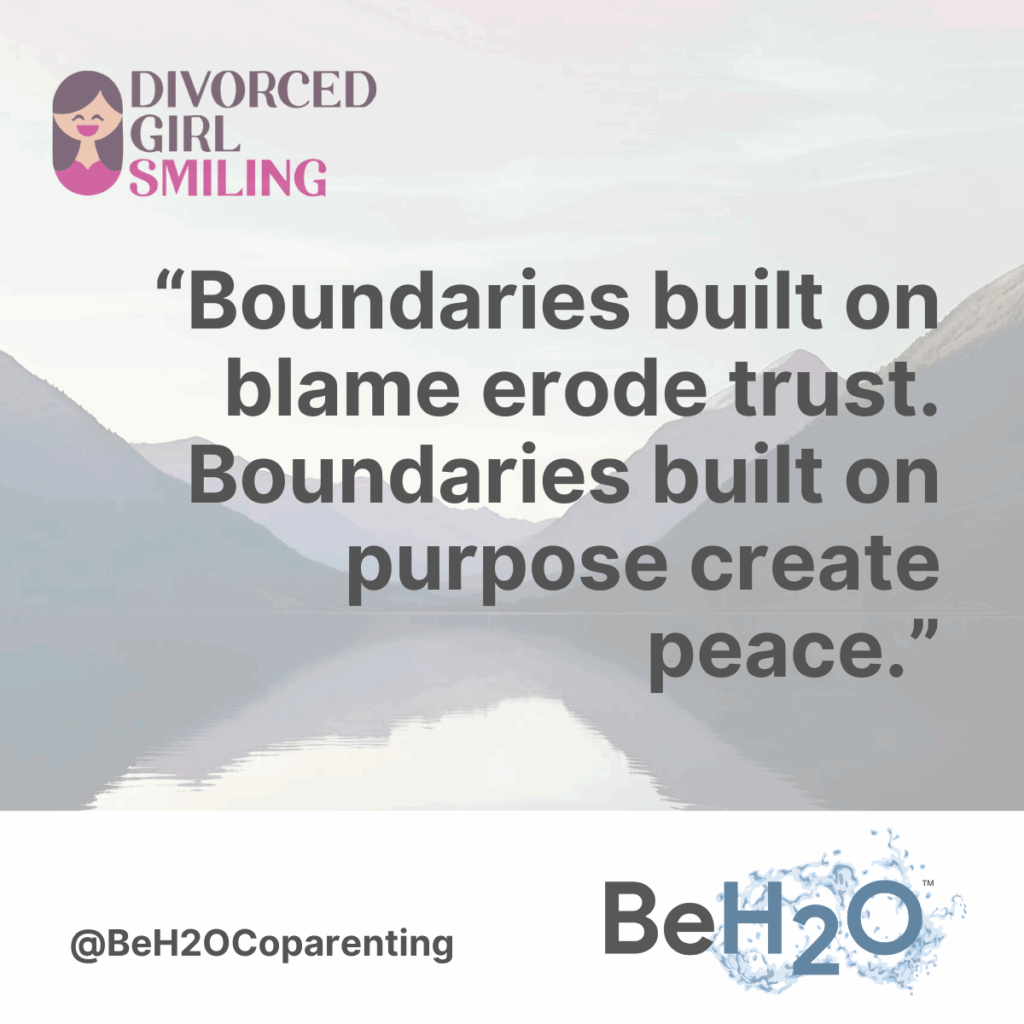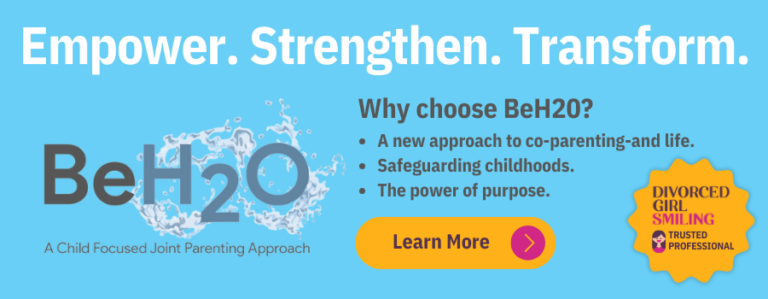Starting a new relationship while co-parenting can feel like stepping into uncharted waters—especially when the waves of the past haven’t fully settled. Add to that the unpredictable tides of a new partner’s expectations, your child’s emotional needs, and your co-parent’s reactions, and the journey can quickly become choppy. But here’s the key. The idea of co-parenting boundaries while in a new relationship is about aligning; aligning those boundaries with your greater “why.”
The Entrepreneurial Mindset of Co-Parenting
At BeH2O®, we invite parents to think like entrepreneurs—not in pursuit of profit, but in pursuit of purpose. Entrepreneurs don’t chase every opportunity; they assess what aligns with their mission. Co-parenting is no different. Your mission? Safeguarding your child’s well-being.
Boundaries in a new relationship must serve that mission, not sabotage it.
Before reacting to your co-parent’s discomfort or over-accommodating your new partner’s wishes, ask:
Is this decision in service of our child’s stability and growth? Or is it driven by fear, guilt, or ego?
Boundaries That Flow—but Don’t Leak
The BeH2O® framework teaches that healthy co-parenting boundaries are:
- Balanced – They consider both households, but always weigh the child’s experience above all.
- Aligned – They are rooted in your mutual goals, not old wounds or new relationship dynamics.
- Necessary – They are not about control or comfort, but about protecting what matters most.
- Communicated – Not assumed. Not implied. Clearly expressed and not unilaterally declared.
For example, if your new partner wants to attend school events or take part in transitions, a clear, child-focused conversation must happen. How will this affect your child? What boundaries protect their emotional experience while also respecting all adults involved?
When the Past and Present Collide
It’s common to feel pulled in multiple directions—wanting to please your new partner, keep the peace with your co-parent, and avoid rocking the boat for your kids. But boundaries are not about appeasement—they’re about alignment.
When boundaries are unclear, children bear the emotional cost. They pick up on tension. They internalize blame. They feel stuck between worlds. But when boundaries are firm, fair, and grounded in a shared mission, children experience the security of consistency—even amidst family change.

A Tool for Reflection
Here’s a boundary-check question to guide your next decision:
“Is this boundary helping our child feel safe, stable, and free from adult dynamics—or am I responding to someone else’s discomfort at the expense of our greater goals?”
You can’t control your co-parent’s reaction. You can’t control your partner’s opinion. But you can control how you show up—with strength, clarity, and intention.
Final Thoughts on Co-parenting Boundaries While in a New Relationship
Being in a new relationship doesn’t make you a bad co-parent. But it does require more conscious navigation. It’s easy to default to emotional reactivity or avoid difficult conversations. But leadership in co-parenting means holding the line—with compassion, but also conviction.
Boundaries built on blame erode trust. Boundaries built on purpose create peace.
Let them flow—but never forget what you’re protecting.
Are you navigating a new relationship while co-parenting?
Don’t go it alone. BeH2O® Coaches are trained to help you define boundaries that strengthen—not splinter—your family’s foundation.
Explore how BeH2O® can support your journey at www.BeH2Ocoparenting.com.
Let’s build boundaries that protect what matters most.





















